
Explore the Legacy at John Deere Historic Site
Discover the rich history and innovative spirit of John Deere at his historic site in Dixon, Illinois, a must-visit for history and agriculture enthusiasts.
Step into history at the John Deere Historic Site in Dixon, Illinois, where the legacy of one of America's most iconic inventors comes to life. This historic landmark offers visitors an immersive experience into the agricultural innovations that changed the world. Wander through the beautifully preserved site, engage with interactive exhibits, and explore the landscapes that inspired John Deere's groundbreaking work. It's a must-visit for history buffs and anyone curious about the roots of modern farming.
A brief summary to John Deere Historic Site
- 8334 S Clinton St, Dixon, Illinois, 61021, US
- +1815-652-4551
- Visit website
Local tips
- Visit during weekdays to avoid crowds and enjoy a more personal experience.
- Check the website for special events or exhibit openings to enhance your visit.
- Plan at least two hours to fully explore the site and its exhibits.
- Don't miss the gift shop for unique memorabilia related to John Deere.
- Bring a camera to capture the beautiful landscapes and historic buildings.
Getting There
-
Car
If you are traveling by car, take Interstate 88 and exit onto IL-26 S toward Dixon. Continue on IL-26 S for approximately 20 miles. As you approach Dixon, turn left onto W 1st St. After about 0.5 miles, turn right onto S Clinton St. The John Deere Historic Site will be on your left at 8334 S Clinton St, Dixon, IL 61021. Parking is available on-site.
-
Public Transportation
To reach the John Deere Historic Site via public transportation, first take a Greyhound bus to Dixon. Once you arrive at the Dixon bus station, you will need to take a local taxi or rideshare service (like Uber or Lyft) to reach the John Deere Historic Site, which is approximately 4 miles away from the station. Be prepared for a taxi fare that could range from $10 to $15.
-
Bicycle
If you prefer cycling, you can ride along the local roads from downtown Dixon to the John Deere Historic Site. Take S Galena Ave south out of town and turn onto W 1st St and then onto S Clinton St. The total distance is about 4 miles. Ensure you wear a helmet and follow local traffic regulations.
-
Walking
For those who enjoy walking, you can walk from the downtown area of Dixon to the John Deere Historic Site. The distance is about 4 miles. Head south on S Galena Ave, then turn onto W 1st St and finally onto S Clinton St. This route will take approximately 1.5 to 2 hours depending on your pace. Be sure to wear comfortable shoes.
Discover more about John Deere Historic Site
Iconic landmarks you can’t miss
Northwest Territory Historic Center
8.4 km
Explore regional history at the Northwest Territory Historic Center in Dixon, IL, a Smithsonian affiliate in Ronald Reagan's boyhood school.
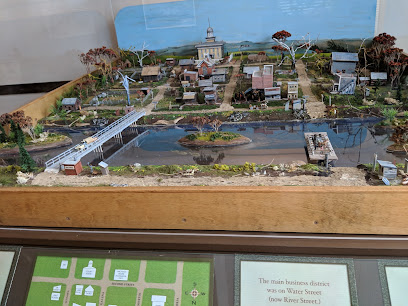
Dixon Historic Center
8.4 km
Explore regional history and Ronald Reagan's roots at the Northwest Territory Historic Center in Dixon, Illinois.

Castle Rock Overlook
8.6 km
Experience breathtaking views of the Rock River from atop the iconic Castle Rock Overlook in Oregon, Illinois.
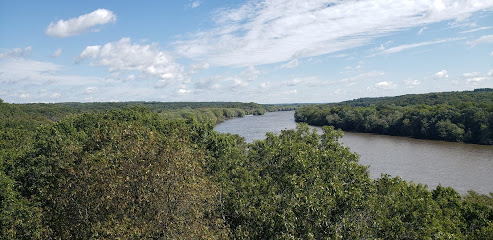
Castle Rock State Park
10.0 km
Explore sculpted sandstone, redwood forests, and panoramic vistas in the heart of the Santa Cruz Mountains at Castle Rock State Park.
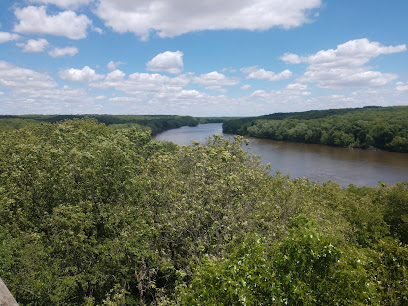
Silvamore Estate
14.5 km
Explore the serene beauty and rich history of Silvamore Estate, a captivating landmark in Oregon, Illinois, perfect for history enthusiasts and nature lovers.

The Brick Road
18.1 km
Discover the historic allure of The Brick Road in Oregon, Illinois – a picturesque landmark steeped in history and charm.
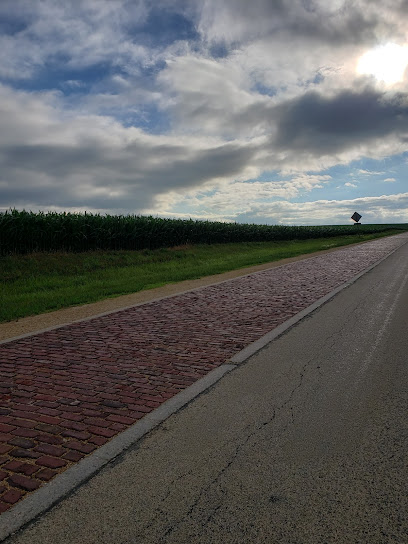
Sinnissippi Mounds Historic Site
23.2 km
Discover ancient history at Sinnissippi Mounds in Sterling, Illinois, where earthen mounds whisper tales of the Hopewell culture.
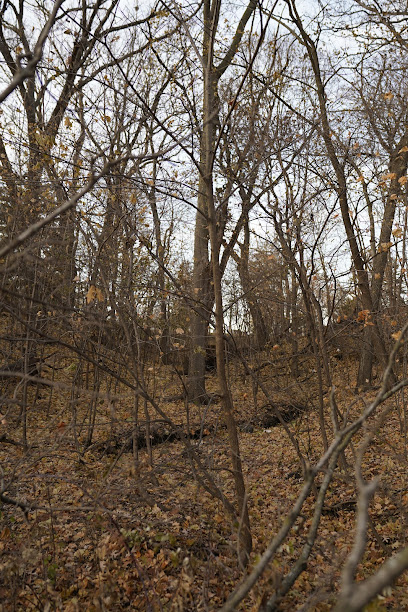
Dillon Home Museum
24.9 km
Explore Sterling, Illinois' Dillon Home Museum: A preserved Italianate home with original furnishings and local history.
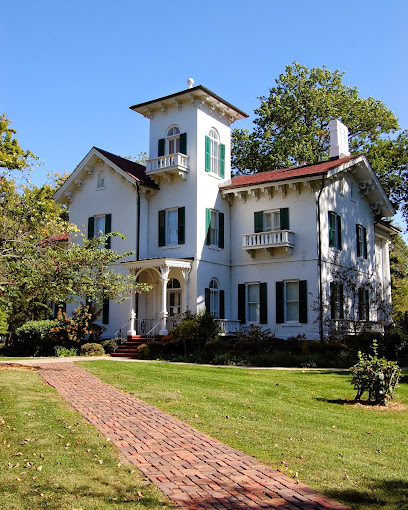
Lincoln-Manahan Home Museum
25.4 km
Step back in time at the Lincoln-Manahan Home Museum, where Abraham Lincoln once stayed, and experience life in the 1850s in Sterling, Illinois.
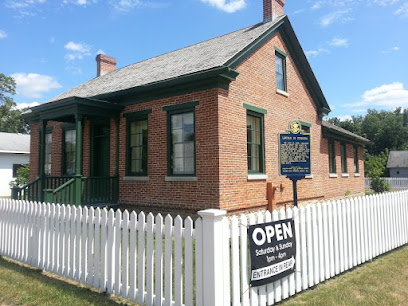
William H. Holcomb House
28.8 km
Step back in time at the William H. Holcomb House in Rochelle, Illinois, and discover Victorian architecture and rich local heritage.
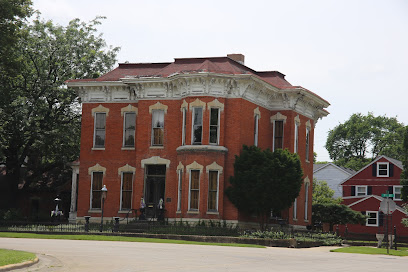
Soldier's Monument
28.9 km
Visit Illinois' oldest Civil War monument in Byron, a tribute to local heroes and a testament to community remembrance.
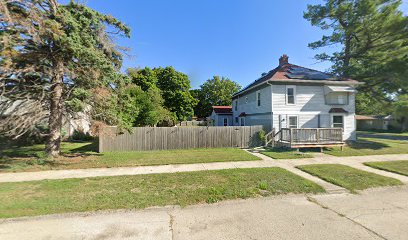
Historic Standard Oil - First gasoline station along the Lincoln Hwy in Illinois
29.0 km
Visit the first gasoline station along Illinois' Lincoln Highway, a beautifully restored 1918 Standard Oil landmark in Rochelle.
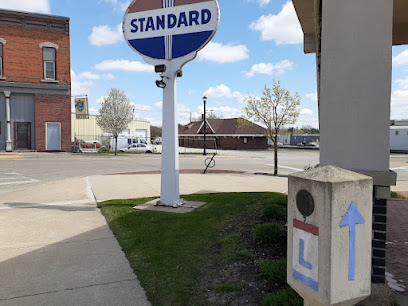
Indian Hill Manor / Esta Barrett Manor & Gardens
39.3 km
Explore a historic estate with stunning architecture and gardens at Indian Hill Manor, a landmark on the National Register of Historic Places.
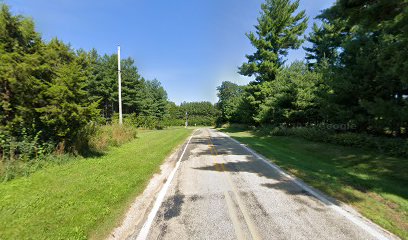
Kishwaukee River Fork Rock River
39.8 km
Discover the scenic beauty and historical significance where the Kishwaukee River meets the Rock River in Rockford Township, Illinois.
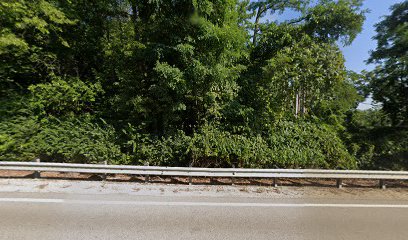
Lincoln Highway Seedling Mile Historical Marker
44.7 km
Commemorating the first concrete 'seedling mile' of the Lincoln Highway near Malta, Illinois, a pivotal moment in U.S. transportation history.
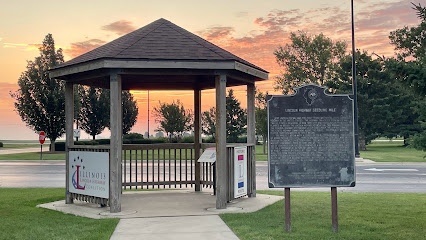
Unmissable attractions to see
Franklin Creek State Natural Area
6.6 km
Explore the tranquil beauty of Franklin Creek State Natural Area, a perfect retreat for hiking, birdwatching, and nature photography in Illinois.
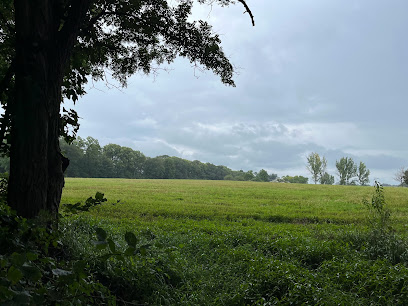
Ronald Reagan Boyhood Home
8.6 km
Discover the roots of Ronald Reagan's legacy at his boyhood home in Dixon, Illinois, a historical museum showcasing his early life.
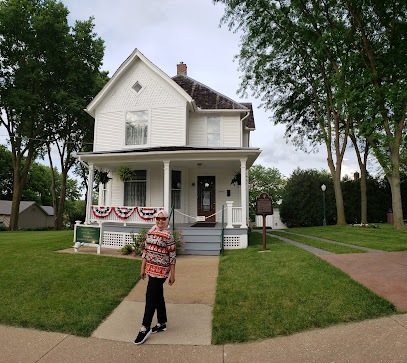
Chaplin Creek Historic Village
11.7 km
Explore the historic charm of Chaplin Creek Historic Village in Franklin Grove, IL, where history comes alive through preserved buildings and engaging events.
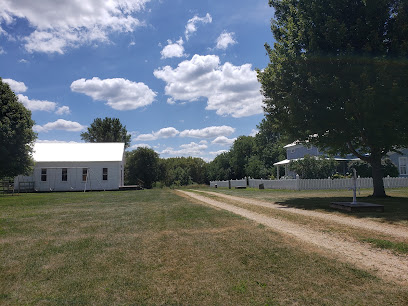
Pride of Oregon
16.7 km
Explore the breathtaking views and delightful dining at Pride of Oregon, a scenic riverside attraction in Illinois that promises memorable experiences.

Black Hawk Statue
16.8 km
Explore the Black Hawk Statue, a towering symbol of Native American heritage, nestled in the scenic landscapes of Oregon, Illinois.
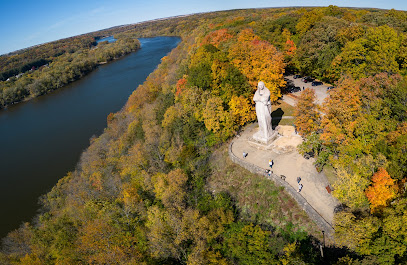
Lowden State Park
17.2 km
Explore the natural beauty and cultural significance of Lowden State Park, a serene retreat along the Rock River in Illinois.
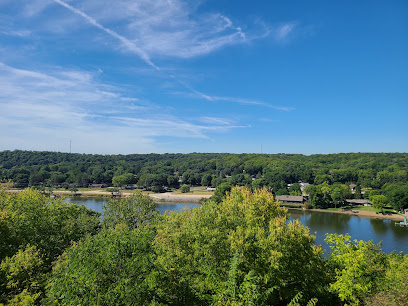
Better Place Forests - Rock River
17.7 km
Discover solace and remembrance at Better Place Forests - Rock River, a tranquil memorial park in Oregon, Illinois, blending nature and memory.

Jarrett Prairie Center
26.8 km
Discover the beauty and biodiversity of the Jarrett Prairie Center in Byron, Illinois - a perfect blend of park and museum for nature enthusiasts.
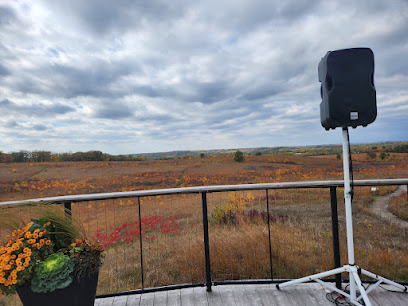
Oakdale Nature Preserve
41.1 km
Explore the serene beauty of Oakdale Nature Preserve in Freeport, Illinois - a perfect outdoor getaway for families and nature enthusiasts.
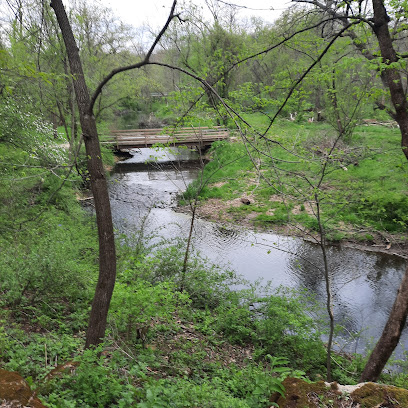
Klehm Arboretum & Botanic Garden
46.1 km
Explore the stunning landscapes and diverse plant collections at Klehm Arboretum & Botanic Garden in Rockford, Illinois, a perfect retreat for nature lovers.
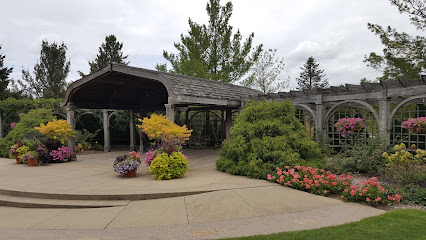
Krape Park
46.8 km
Explore Krape Park in Freeport, IL - a serene city park filled with nature trails, beautiful gardens, and family-friendly activities for all ages.
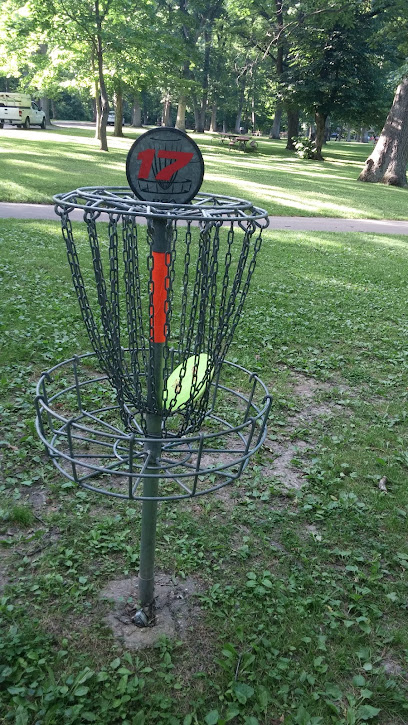
Kishwaukee River Forest Preserve
47.7 km
Explore the picturesque Kishwaukee River Forest Preserve, a serene escape filled with lush landscapes, recreational activities, and stunning river views in Illinois.
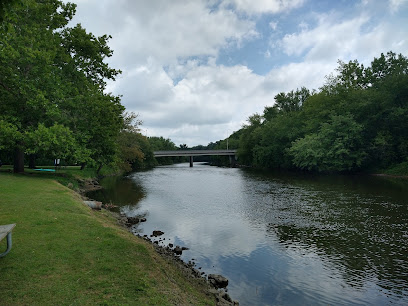
Ethnic Heritage Museum
48.2 km
Explore the Ethnic Heritage Museum in Rockford, IL, where diverse cultures and histories come to life through engaging exhibits and community stories.
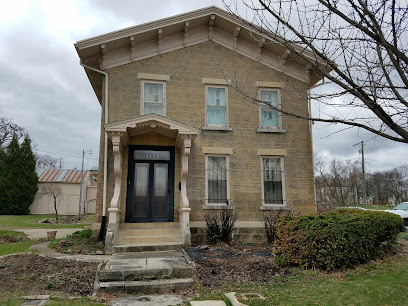
Tinker Swiss Cottage Museum and Gardens
48.4 km
Explore Tinker Swiss Cottage Museum and Gardens, a historical gem in Rockford, Illinois, where rich history meets beautiful gardens.
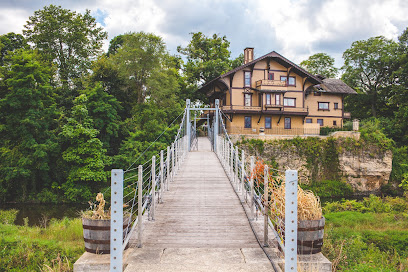
Erlander Home Museum
49.0 km
Explore the Erlander Home Museum and uncover the rich Swedish heritage of Rockford, Illinois, through its authentic exhibits and immersive history.
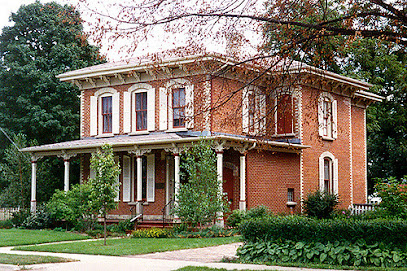
Essential places to dine
John's Restaurant & Pizzeria
46.9 km
Experience authentic Italian cuisine at John's Restaurant & Pizzeria in Rockford – famous for its pizza and warm hospitality.
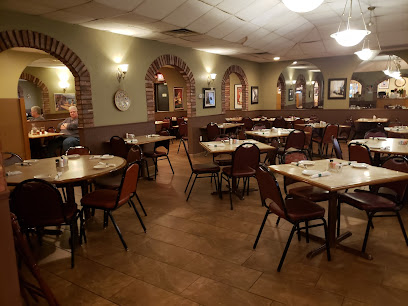
Mr. C's Family Restaurant
47.8 km
Discover the warmth of family dining at Mr. C's Family Restaurant in Rockford - where delicious meals meet friendly service!
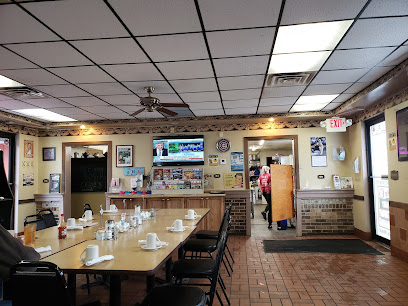
Rock-A-Bago
47.8 km
Discover Rock-A-Bago in Rockford: A haven for pizza lovers featuring delicious pies in a cozy setting perfect for family dining.

Behr Den Restaurant
48.0 km
Discover delicious local flavors at Behr Den Restaurant in Rockford – where cozy meets affordable dining!
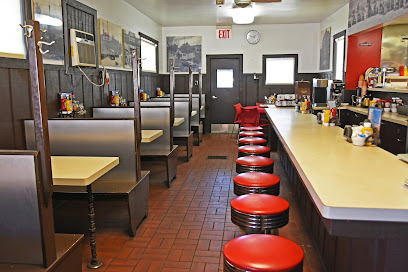
5 Coins Restaurant Inc
48.3 km
Experience family-friendly dining at 5 Coins Restaurant Inc in Rockford, Illinois – where delicious meals meet warm hospitality.
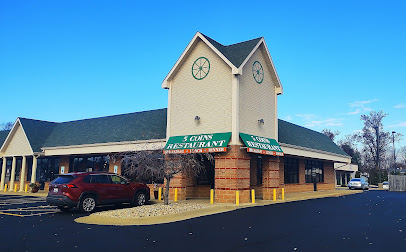
Tower Kitchen & Bar
49.0 km
Discover the vibrant flavors of Rockford at Tower Kitchen & Bar - where American cuisine meets a lively bar atmosphere.

The Top Rooftop Bar & Lounge
49.0 km
Discover unforgettable rooftop views and exquisite dining at The Top Rooftop Bar & Lounge in Rockford, Illinois.

Chuc-a-Luc's Fish Market Grill & Soul Food
49.2 km
Discover the vibrant flavors of soul food and fresh seafood at Chuc-a-Luc's Fish Market Grill & Soul Food in Rockford.
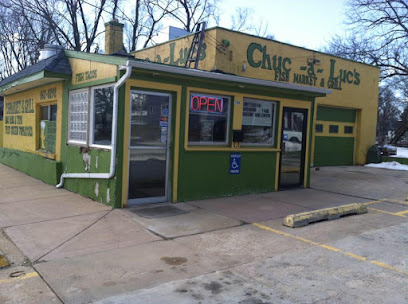
Omakase
49.4 km
Discover Rockford's finest sushi experience at Omakase - where culinary artistry meets exceptional flavors.

Social Urban Bar & Restaurant
49.4 km
Discover fine dining at Social Urban Bar & Restaurant in Rockford - where exquisite American cuisine meets vibrant urban ambiance.

LimaMar Restaurant & Cocktail Bar
49.4 km
Experience authentic Peruvian flavors at LimaMar Restaurant & Cocktail Bar in Rockford—where culinary tradition meets modern flair.

Sisters Thai Cafe
49.4 km
Experience the best of authentic Thai cuisine at Sisters Thai Cafe in Rockford - where every dish tells a story of flavor.

Woodfire Rockford
49.4 km
Experience the taste of Italy at Woodfire Rockford - renowned for its authentic wood-fired pizzas and inviting atmosphere.

District Bar and Grill
49.4 km
Discover Rockford's vibrant nightlife at District Bar and Grill – where delicious food meets live music in an inviting atmosphere.

Screw City Tavern
49.4 km
Discover the culinary delights of Screw City Tavern in Rockford - where hearty meals meet friendly service in a vibrant setting.

Markets, malls and hidden boutiques
Resale
48.3 km
Uncover unique antique furniture pieces and vintage treasures in Rockford, Illinois, perfect for enhancing your home and creating lasting memories.

Minglewood
48.5 km
Explore Minglewood, Rockford's charming boutique offering unique fashion finds and personalized shopping experiences for every style.

Treasures Galore
48.8 km
Explore Treasures Galore in Rockford, IL - a unique consignment shop with vintage finds and eclectic treasures for every shopper.
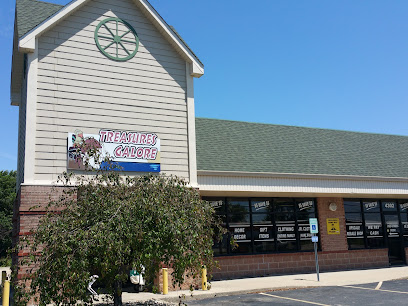
Tiffany's Luscious Boutique
49.1 km
Explore unique women's fashion at Tiffany's Luscious Boutique in Rockford, where style meets personalized service for an unforgettable shopping experience.

29 Palms-The Collector's Oasis LLC
49.3 km
Explore 29 Palms - The Collector's Oasis LLC in Rockford, Illinois, for an exciting selection of unique collectibles and vintage treasures.

Remade
49.4 km
Explore Remade in Rockford, a unique home goods store offering eclectic decor and artisanal treasures that capture the spirit of local craftsmanship.
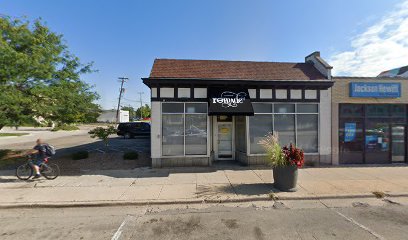
S'mores Collectibles and Vintage
49.4 km
Explore S'mores Collectibles and Vintage in Rockford, IL for a unique shopping experience filled with rare finds and nostalgic treasures.

Smiley's Vintage
49.5 km
Explore the charm of vintage fashion at Smiley's Vintage in Rockford, Illinois - a unique destination for eclectic finds and timeless treasures.
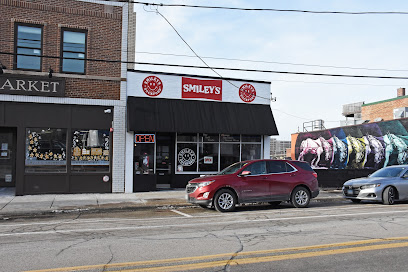
Weirdo Art Collectibles
49.5 km
Explore Weirdo Art Collectibles, a unique gift shop in Rockford, IL, brimming with quirky art and one-of-a-kind treasures to enhance your travel experience.

Smith & Sons
49.5 km
Explore a captivating array of vintage treasures at Smith & Sons Antique Store in Rockford, Illinois, where history meets charm and nostalgia.
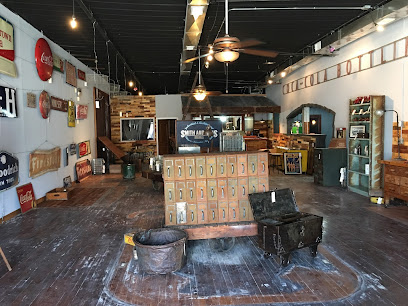
Inscape Collective
49.5 km
Explore Inscape Collective in Rockford, IL for unique gifts and handcrafted items that embody local artistry and creativity.

Downtown Shoes & Boutique
49.5 km
Discover unique footwear and chic clothing at Downtown Shoes & Boutique in Rockford, Illinois - your trendy shopping destination awaits!
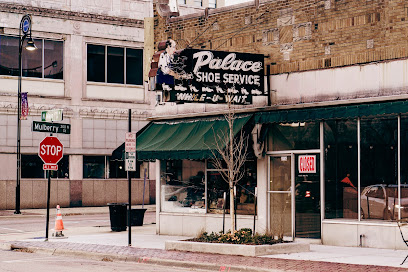
Sacred Places And More
49.7 km
Explore the charm of Sacred Places And More, a thrift store in Rockford, Illinois, where unique treasures and local character await every visitor.
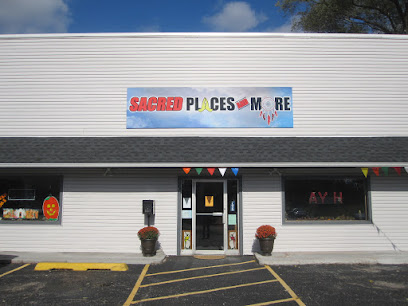
Culture Shock Records - Gifts - Clothing
50.0 km
Explore Culture Shock Records in Rockford, IL – a vibrant gift shop and boutique featuring unique gifts, trendy clothing, and a wide selection of vinyl records.

Great Hang-Ups
50.2 km
Explore Great Hang-Ups in Rockford, IL for a unique mix of women's fashion, bridal wear, and accessories in a charming boutique atmosphere.

Essential bars & hidden hideouts
Jerod's Bar & Grill
39.3 km
Discover the flavors of Shannon, Illinois at Jerod's Bar & Grill, where local cuisine meets a cozy bar atmosphere for a memorable dining experience.

Leland Illinois
41.5 km
Explore the quaint charm of Leland, Illinois — a hidden gem with scenic beauty, warm hospitality, and local culture waiting to be discovered.
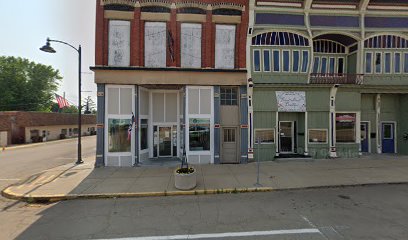
New Mill Tap
42.6 km
Discover the lively atmosphere at New Mill Tap in Rockford, where great drinks and friendly vibes await every visitor.

The Filling Station
43.2 km
Experience the perfect blend of sports and karaoke at The Filling Station, Rockford's lively destination for food, drinks, and entertainment.

The Victory Tap
48.0 km
Experience Rockford's local culture at The Victory Tap, where friendly faces and affordable drinks create the perfect atmosphere for relaxation and fun.

Railroad Tap
49.0 km
Explore the vibrant atmosphere of Railroad Tap, Rockford's beloved bar offering local brews, live music, and a warm community vibe.
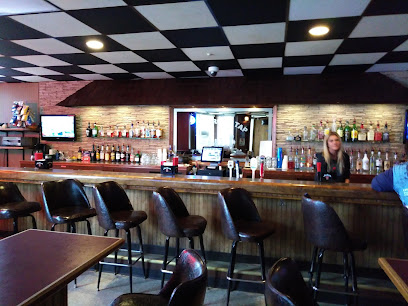
Wood & Brick Tavern
49.1 km
Experience the rustic charm and vibrant atmosphere at Wood & Brick Tavern in Rockford, Illinois, the perfect spot for drinks and local flavor.
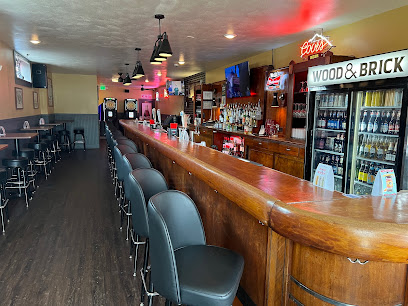
Minnihan's
49.2 km
Discover the vibrant nightlife at Minnihan's, a lively bar in Downtown Rockford offering a diverse drink menu and a welcoming atmosphere.

CJs Public House
49.4 km
Discover the lively atmosphere and diverse drink selection at CJs Public House, Rockford's premier lounge and cocktail bar.

The Oasis Micro-Pub
49.5 km
Experience the essence of Rockford nightlife at The Oasis Micro-Pub, where craft beers and community vibes come together.
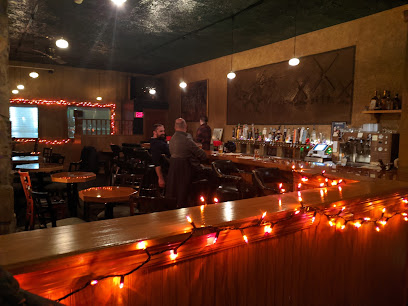
2 Wheel Inn
49.7 km
Discover the lively ambiance and affordable drinks at 2 Wheel Inn, a must-visit bar in Rockford, Illinois, perfect for relaxation and socializing.

Mary's Place
50.0 km
Discover the charm of Rockford at Mary's Place, a cozy bar offering craft drinks and a welcoming atmosphere for tourists and locals alike.

8th Ward Pub
50.7 km
Discover the 8th Ward Pub in Rockford, Illinois, where vibrant cocktails and delicious tapas create the perfect setting for unforgettable gatherings.

The Copper Cow
50.9 km
Discover The Copper Cow, your go-to bar and family restaurant in Mt Carroll, offering live music, delicious food, and a warm community atmosphere.
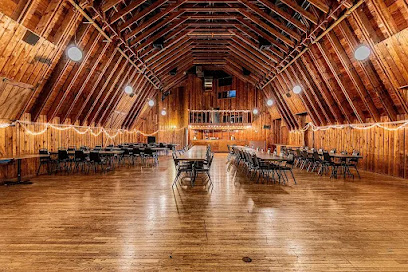
Rural on Tap
51.0 km
Discover the charm of Rural on Tap in Rockford, Illinois—your destination for great drinks and warm hospitality in a lively bar atmosphere.

Nightclubs & after hour spots
Broadway Lounge
48.2 km
Discover Rockford's nightlife at Broadway Lounge, where signature cocktails and live music create an unforgettable experience.
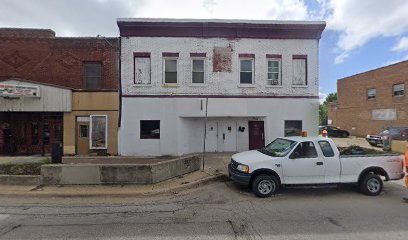
Aragona Club
48.3 km
Discover the heart of Rockford's nightlife at Aragona Club, where music, dancing, and excitement await every night.

3LLL Club
48.4 km
Unleash your night at 3LLL Club in Rockford, IL – a vibrant bar experience perfect for socializing and enjoying nightlife.

Golden Bar
49.1 km
Discover the vibrant nightlife at Golden Bar in Rockford, Illinois, with its diverse drink menu and lively atmosphere for an unforgettable evening.
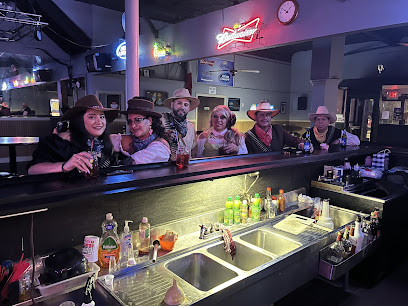
Lyran Society
49.2 km
Discover Rockford's hidden nightlife gem at Lyran Society, where live music meets delicious food in an inviting atmosphere.
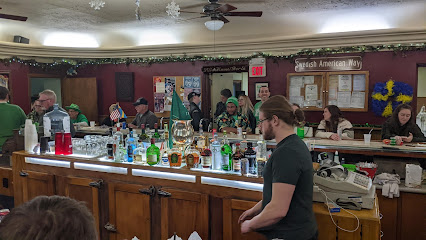
The Office Niteclub
49.4 km
Experience the vibrant nightlife at The Office Niteclub, Rockford's premier gay nightclub, offering dance, drinks, and a welcoming atmosphere for all.

Bigfoot Gentlemen's Club
50.8 km
Experience the exhilarating nightlife at Bigfoot Gentlemen's Club in Rockford, where entertainment and a lively bar atmosphere come together for unforgettable evenings.

Tiger Tail Lounge, Your Adult Entertainment Super Night Club
56.0 km
Discover the vibrant nightlife of Rockford at Tiger Tail Lounge, your premier destination for adult entertainment and unforgettable experiences.

Elle's Tap
67.8 km
Discover the lively atmosphere and diverse drink selection at Elle's Tap, a perfect spot for socializing and enjoying local flavors in Peru, Illinois.

Starved Rock Entertainment
70.9 km
Experience thrilling escape rooms and fun-filled activities at Starved Rock Entertainment, perfect for families and friends in North Utica, Illinois.

Days Inn by Wyndham Oglesby/ Starved Rock
72.4 km
Experience the perfect blend of comfort and adventure at Days Inn by Wyndham Oglesby, just minutes from Starved Rock State Park.

Starved Rock Yacht Club
75.4 km
Discover the tranquility of Starved Rock Yacht Club, where boating meets community in a stunning riverside setting.

Fairfield Inn & Suites Ottawa Starved Rock Area
75.5 km
Experience ultimate comfort and convenience at Fairfield Inn & Suites, your gateway to the beautiful Starved Rock State Park in Ottawa, Illinois.

Tiki
75.8 km
Discover Tiki, Ottawa's tropical-themed bar, where refreshing drinks and a relaxing atmosphere await you in the heart of Illinois.
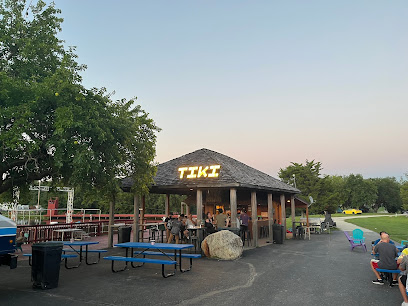
Aurora Tap House
92.1 km
Discover Aurora Tap House: where great food meets lively entertainment in the heart of Illinois!




